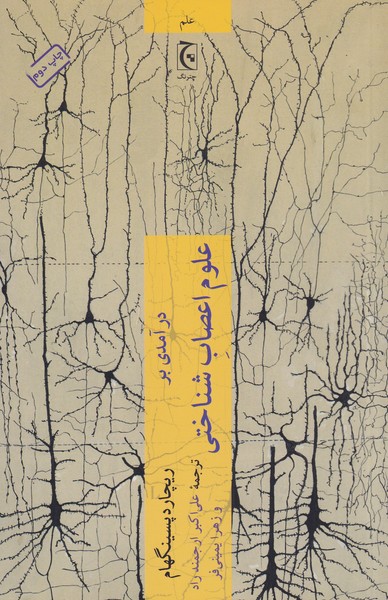Dar'āmadī bar 'lūm-i a'sāb-i shinākhtī: Persian 1402
درآمدی بر علوم اعصاب شناختی
186 SEK
Share
Wishlist
ISBN:
9786227342130
Translator:
'ali Akbar Arjmand Rād
,
Zahrā Yamīnī'far
Publisher:
Chatrang
Age Group:
Adult
Pages:
139
Weight:
126 g
Dimensions:
14 x 21 x 1.2 cm
Book Cover:
Paperback
Why do people with Alzheimer's have trouble finding their way? Why do some people who have a limb amputated still feel the amputated limb? Why do some patients not notice objects on their left side after a stroke? How is a person able to infer the meaning of others? In the introductory book on cognitive neuroscience, we find answers to such questions. The content of this book is written in such a way that it is understandable for general readers interested in increasing awareness in this field, and specialized knowledge in this field is not required. Cognitive neuroscience is a bridge between cognitive psychology and neuroscience. This science has emerged with the emergence of advanced methods of studying brain activity while performing motor and mental actions; Methods such as positron emission tomography, magnetoencephalography, functional magnetic resonance imaging of the brain and weighted emission imaging. The author of this book is Richard Pessingham, an English researcher in neuroscience and a recipient of the award of the Royal Society of England. He is an international expert on frontal lobe mechanisms in decision making and executive control. An introduction to cognitive neuroscience was translated into Farsi by Ali Akbar Arjamand Rad and Zahra Yaminifar, and it was published by Chetrang Publishing House in 139 pages.
more
چرا افراد مبتلا به آلزایمر در یافتن مسیر خود مشکل دارند؟ چرا برخی افراد که عضوی از بدنشان قطع شده، باز هم عضو قطعشده را حس میکنند؟ چرا برخی بیماران پس از سکتۀ مغزی متوجه اشیای سمت چپشان نمیشوند؟ انسان چگونه قادر به استنباط منظور دیگران است؟ در کتاب درآمدی بر علوم اعصاب شناختی برای پرسشهایی از این دست، پاسخی مییابیم. مطالب این کتاب به گونهای نگاشته شده است که برای عموم خوانندگان علاقهمند به افزایش آگاهی در این زمینه فهمیدنی باشد و به دانش تخصصی در این زمینه نیازی نیست. علوم اعصاب شناختی پلی است بین روانشناسی شناختی و علوم اعصاب. این علم با ظهور روشهای پیشرفتۀ مطالعۀ فعالیت مغز هنگام انجام اعمال حرکتی و ذهنی پدیدار شده است؛ روشهایی مانند توموگرافی با نشر پوزیترون، مگنتوآنسفالوگرافی، تصویربرداری تشدید مغناطیسی کارکردی مغز و تصویربرداری انتشار وزنی. نویسندۀ این کتاب، ریچارد پسینگهام، محقق انگلیسی علوم اعصاب و دارندۀ جایزۀ انجمن همکاران سلطنتی انگلستان است. او متخصص بینالمللی سازوکارهای لوب فرونتال در تصمیمگیری و کنترل اجرایی است. درآمدی بر علوم اعصاب شناختی را علیاکبر ارجمند راد و زهرا یمینیفر به فارسی برگرداندهاند و نشر چترنگ آن را در ۱۳۹ صفحه منتشر کرده است.
more













